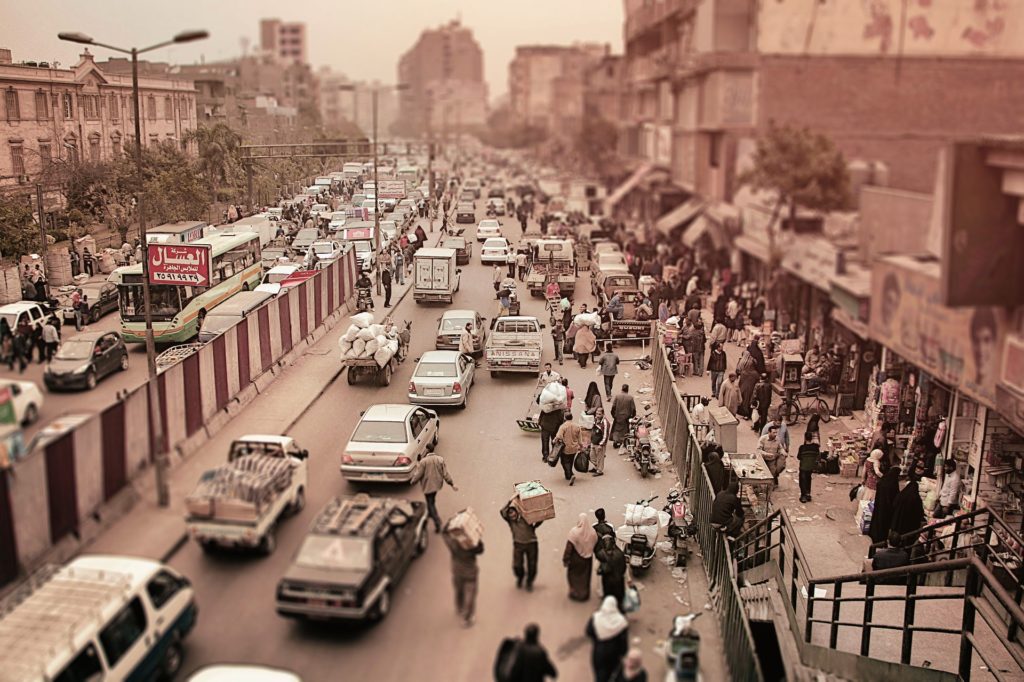After volunteering for two years at an internationally developed shelter with approximately 30 homeless and abandoned youth in Cairo, Dr. Rania Kassab Sweis describes how the well-intentioned westernized treatment may further marginalize the very people it is trying to treat. In a new article, published in Medical Anthropology Quarterly, Sweis writes:
“Trauma discourses underpin important practices of care for vulnerable groups in the region, but for children in the Middle East and, specifically, street children in Cairo they also unwittingly reinforce notions of young male biological instability and violent masculinity. The very tactics used by young street boys to become men are used against them in clinical settings and shelters where they constitute a problem and require intervention.”
 While the movement for global mental health continues to build steam, researchers have cautioned against interventions that fail to take into account local knowledge and agency in response to global social injustices. In this article, Sweis examines the adverse, albeit unintentional, effects of implementing the western bio-medical approach with “adfāl al shawāri” (street children), specifically males, in Egypt.
While the movement for global mental health continues to build steam, researchers have cautioned against interventions that fail to take into account local knowledge and agency in response to global social injustices. In this article, Sweis examines the adverse, albeit unintentional, effects of implementing the western bio-medical approach with “adfāl al shawāri” (street children), specifically males, in Egypt.
“My aim is not to question the truthfulness of homeless children’s suffering, but to raise new questions about what global trauma discourses and practices do for Western-based international organizations, their workers, and the children they intend to assist,” Sweis writes.
Global aid can affect local childhoods and produce “paradoxical and sometimes negative social effects.” As a rising global “trauma discourse” is reified and implemented through international programs throughout the Middle East, another body of research challenges such western medical notions. For instance, Sweis challenges whether the effects of war or poverty are best understood through the lens of untreated psychological disturbances.
Other scholars of global aid “show how trauma relief, like other forms of humanitarian medical aid, works to depoliticize structural violence and poverty, offering technical, sanitized, individualized solutions focused on the body of the pathologized sufferer instead of large-scale political solutions,” Sweis writes.
In a new article, Sweis underscores the role of gender in these treatment approaches, and how boys are more often targeted as “biologically more threatened and threatening” than girls. The article demonstrates how cultural anxieties “based on race and class” inform medical “facts” and prevalent mental health perceptions.
Sweis is concerned with how concerns with young Muslim masculinity, linked with the so-called global threat of Islam, “fold onto local gender, generational, and classed relations of inequality between humanitarian workers and recipients.”
Sweis conducted ethnographic fieldwork with the international organization, Children’s Charity International (CCI; a pseudonym), between 2007-2009. Volunteering her services in exchange for research privileges, she assisted with daily tasks, participated in health-related regimens, sat in on medical training workshops for workers, and accompanied children on doctor’s visits, among other duties. At the same time, she conducted informal interviews with the children and observed the practices of the involved adults, i.e., CCI workers, doctors, and activists.
Sweis paid close attention to the “trauma discourse unfolding around the figure of the street child in Cairo” and the power relations between adults and children inherent in the mental health treatment. She observed that street children were understood as “vulnerable victims of structural forces beyond their control, mainly structural poverty and government/state violence-as collective victims of these forms of trauma,” yet older boys were more often identified as perpetrators of violence and girls/younger boys were portrayed as “passive victims.”
Within the structure of the shelter, older boys contended with authority, having had to cultivate and maintain their masculinity and necessary toughness on the streets to make money and sustain relationships. While these performances benefited them on the streets, the same behaviors often led them to be denied entry to a shelter, as CCI workers reject children they believe might disturb existing adult-child humanitarian hierarchies. Workers notably singled out older boys as more likely to cause problems since they were the most independent and active of the street kids.
“The irony of psychiatric humanitarian aid for street children in Cairo is that for young boys to survive on the streets, they must adopt practices that get interpreted by clinicians as risky and delinquent, if not threatening, and that require pharmaceutical remedies,” Sweis writes. “It is important to note that as global health regimes frame childhood trauma through biological universals that assume all children around the world suffer according to the same logics.”
A similar trend regarding psychotropic medications is evident. The workers were more likely to prescribe psychiatric drugs to teenage boys than girls, and “nearly a third of the boys living at CCI’s shelter were under mandatory psychiatric and pharmaceutical care.” Although they often resisted this form of treatment, the psychiatrist reports convincing them to comply, believing they suffered disproportionately from conditions that could lead to violence. This complex approach to clinical care was understood as a “viable, although limited” solution for the context of “trauma and homelessness.”
“Global medical interventions with street children emphasize individual ‘biological suffering’ and form part of a broader trend in humanitarianism that contributes to the depoliticization of poverty and diverse childhood experiences,” Sweis writes.
Further research on the ways in which humanitarian practices may reinforce gendered agendas in environments of intense violence is warranted to understand better how to alleviate childhood suffering.
****
Sweis, R. K. (2017). Security and the traumatized street child: How gender shapes international psychiatric aid in Cairo. Medical Anthropology Quarterly 32(1), 5-21. https://doi.org/10.1111/maq.12392 (Link)















“… interventions that fail to take into account local knowledge and agency in response to global social injustices.” Don’t all of psychiatry’s interventions “fail to take into account local knowledge,” even in America? I mean, how often do we see blogs on this website, which claim common sense concepts are “news?” Because what is common sense to the majority of people is “news” to the highly delusional psychiatrists. And psychiatry is all about taking away “agency.” If psychiatry’s primary goal weren’t taking away “agency,” forced treatment wouldn’t exist.
“’nearly a third of the boys living at CCI’s shelter were under mandatory psychiatric and pharmaceutical care.’ Although they often resisted this form of treatment, the psychiatrist reports convincing them to comply, believing they suffered disproportionately from conditions that could lead to violence. This complex approach to clinical care was understood as a ‘viable, although limited’ solution for the context of ‘trauma and homelessness.’”
What’s “complex” about drugging trauma survivors and homeless people? Stigmatizing and massively tranquilizing trauma survivors is psychiatry’s simplistic solution for silencing and discrediting millions and millions of American child abuse survivors. And since drugs don’t cure people of trauma or homelessness, it’s just evil to drug trauma survivors and homeless children, in any country.
Let’s hope that “movement for global mental health” loses steam. Especially since psychiatry’s entire DSM “bible” belief system was debunked as “invalid” over five years ago in the US.
https://www.nimh.nih.gov/about/directors/thomas-insel/blog/2013/transforming-diagnosis.shtml
And exporting a failed paradigm of care is dumb, if not evil, just like psychiatry’s belief drugs cure people of trauma is dumb. Psychiatry is just a multibillion dollar, iatrogenic illness creating, child abuse covering up system. And such an industry only aids, abets, and empowers the child abusers and traffickers. Which is not good for anyone on this planet, except the “mental health professionals” who profiteer off of covering up child abuse, and the drug companies.
Report comment
The cruelty of psychiatry is not at all “unintentional”.
In fact, people diagnosed as “mentally ill” are exempted from work, so it is a basic economic principle to subject them to cruel treatment in order to ensure that the “secondary benefit of the disease” is less than the “prejudice of the treatment”, and that the patients are “really crazy”, that is to say crazy enough to lend themselves to barbaric and degrading treatments.
Do you realize, if the “mentally ill” were treated well? Everyone would pretend to be sick, which would be all the easier because most psychiatric diagnoses are not based on any tangible biological criterion.
Report comment
On the other hand, the infinite love of psychiatrists for the Third World is never anything but an effect of overproduction and imperialism. Indeed, psychiatry has reached such a degree of development in the imperialist countries that the market of neurotoxins can no longer be extended without the risk of suppressing economic grown by destroying the brains of the useful labor force; so you have to export these neurotoxins, to destroy the brain of the workforce abroad, for example the brain of tramp children who will probably never be productive.
Economic progress also means having a growing population that is completely useless economically, and that must be managed; and psychiatry offers solutions for managing this surplus and unusable workforce, as well as prison and war.
Report comment
Quite an interesting post
Report comment
“Global Mental Health”
The Globalist Agenda represents a plan to bring all of Earth’s inhabitants under the control of a single, global state. http://www.globalistagenda.org/
“Masculinity” They keep complaining about this.
A totalitarian society can only survive if the male population has been gelded, emasculated and disenfranchised. With this natural bulwark against tyranny removed, the elite can centralize power and pursue collectivist tyranny unopposed. This is why men and masculinity are under assault on every level – and why both men and women should join forces to fight back against this common enemy.
Report comment
Almost all totalitarian societies (I know of no exceptions) are run by men, who, far from being emasculated, have masses of unearned and undeserved power. Women in such societies (on the average) are generally FAR more disempowered than men, though of course, there are many men who are also lower in the power structure and have limited power. These societies are generally organized in authoritarian structures where people are considered above or below other people and where those considered “above” in the system are allowed to abuse those “below” but have to accept the abuse of those “above” them in the system. So the problem isn’t the “emasculation of men,” it is the authoritarian structure of entitlement based on power, regardless of gender. That being said, when gender IS taken into consideration, it is clear that, at least on Planet Earth, women are in almost every case held below men in the hierarchy. I’d challenge you to come up with an example of a totalitarian society where women were in charge, outside of the world of science fiction. Blaming it on “emasculation” of men appears to me to be missing the point.
Report comment
My Mother always used to say, “The road to hell is paved with good intentions.”….
I never really understood what that meant…. Now I get it….
The road to HELL cuts straight through Cairo, and is paved with psychiatry, psych drugs, and multi-national NGO’s….
Report comment